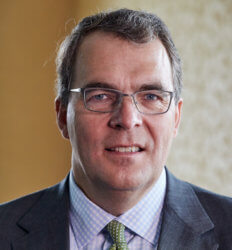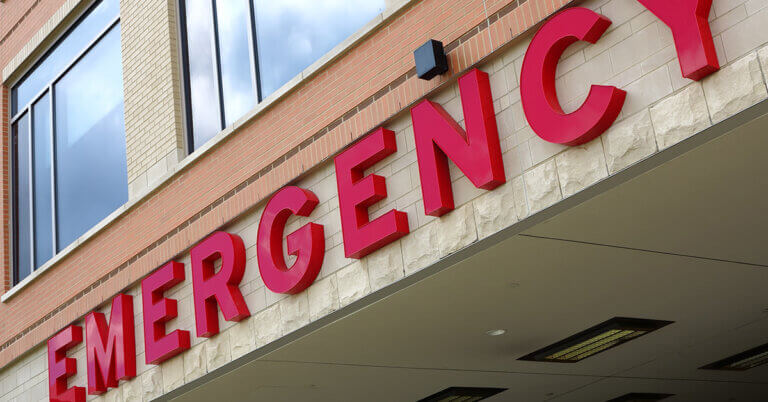February 12, 2020
Widen the Funnel and Close the Gaps: The Summit-CityMD Combo Sees “Big Apple” Opportunity through Integrated Care Delivery
 Private equity-funded delivery models are emerging to create more integrated care models that position well for value-based contracting. These new asset-light and consumer-oriented business models are changing healthcare’s competitive dynamics for the better. This is occurring even in highly fragmented,
Private equity-funded delivery models are emerging to create more integrated care models that position well for value-based contracting. These new asset-light and consumer-oriented business models are changing healthcare’s competitive dynamics for the better. This is occurring even in highly fragmented,
intensely competitive marketplaces like metropolitan New York.
The August 2019 merger of New Jersey-based Summit Medical Group (SMG) and New York-based CityMD seeks to attract customers through lower-cost, more convenient, highly coordinated care services. Their success in doing so will challenge traditional healthcare delivery models that emphasize
market leverage over customer service to drive patient volume and revenues.
Together, SMG-CityMD combines an expansive metropolitan-NYC urgent care presence with a very large primary and specialty care physician group covering northern NJ. The merger achieves two complementary goals that are critical for healthcare organizations seeking to deliver higher quality, lower-cost and more convenient care.
- Widen the funnel: SMG’s primary care services and CityMD’s urgent care services dramatically expand primary care access points for consumers across the metropolitan New York region.
- Close the gaps: The combined platforms will enhance care coordination by smoothing patient hand-offs and offering quality follow-up while keeping referrals inside SMG’s strong multispecialty care delivery platform.
Notably, the SMG-City MD business model is premised on the ability of the combined organization to improve the patient/customer acquisition process. By applying a holistic, integrated care delivery model, Summit-City MD is designed to improve care quality and access, reduce utilization of high cost services, and increase patient satisfaction. The expected outcome is lower total cost of care.
Climbing the Summit
Launched in 1919 by two physicians, SMG is now the largest physician-owned, for-profit, multispecialty medical practice in New Jersey. Summit has been a consistent leader in advancing patient-centered care delivery as an independently owned and operated medical practice.
SMG is also a leader in innovation. In 2002, SMG implemented its own electronic health record (EHR), becoming completely paperless by 2005. In 2012, SMG created a separate Management Services Organization (MSO) that now manages all the business functions of the medical group. This Medical Group/MSO structure has given SMG the ability to scale rapidly by offering its physicians access to efficient and modern systems that streamline operations, enhance customer experience and limit the administrative burdens on individual physicians.
SMG’s care model is comprehensive and different: patient focused, physician led, and asset light by design. While SMG operates no hospitals, it does offer comprehensive care delivery across the care continuum in distributed clinics, high-volume ambulatory surgery and diagnostic facilities. Aligned primary care and specialty physicians work together to deliver the right care at the right time in the right facilities, resulting in a meaningful reduction in the total cost of care relative to he market.
Premerger, Summit’s geographic footprint encompassed 6.5 million people within northern New Jersey. This market is highly fragmented. 60% of the region’s physicians practice in groups with fewer than ten doctors. As measured by employed physicians, SMG is five times larger than the next largest independent group.
This makes SMG a valuable partner to payers and health systems alike. SMG CEO, Dr. Jeffrey LeBenger, notes, “We have very good relationships with every payor in the region and we partner with health systems when it makes sense. But we are not a health system and we don’t own or aspire to own hospitals.”
Following the MSO restructuring in 2012, SMG grew rapidly. Today, SMG operates 80 outpatient locations staffed by specialists and is unmatched in delivering integrated primary and multispecialty services within its northern New Jersey service area. Its services encompass ambulatory care, urgent care, oncology, imaging and pathology.
SMG also has strong relationships with other providers across the care continuum that enable it to better manage access, cost, and quality.
Throughout this period of rapid growth, Dr. LeBenger emphasizes that culture and superior clinical models are what differentiate SMG and enable it to manage care quality, efficiency and cost more effectively than any other provider in the market.
“I frequently talk to my doctors and staff about the importance of growing the primary care side of the business as a way of giving us control over the business model. If you can control referral patterns and manage quality, you can move into a global-risk, capitated system.”
Longer term, its objective is to create a comprehensive care continuum by managing attributed lives (whether commercial or MA) and partnering with high performing acute-care and subacute providers. Already well positioned, SMG’s merger with CityMD significantly advances that goal.
The Urgent Care Advantage

Founded in 2010 in New York City, CityMD is among a new breed of retail-based urgent care companies that is redefining primary care service delivery through consumerism, technology, convenience and transparent pricing. These companies appeal to the growing legions of consumers that do not have established relationships with primary care physicians.
In 2017, the private equity firm Warburg Pincus (WP) acquired a majority stake in CityMD. Warburg liked the company’s business model and its growth potential in the nation’s largest and densest healthcare market. As Warburg Managing Director TJ Carella observes: “We love to find businesses that are at inflection points in their growth trajectory, and then bring more innovation and capital into the mix.”
CityMD has achieved 22% organic growth since its inception. Today, the company operates 110 clinics and treats 2.3 million patients annually. It assesses the quality of its care delivery with an array of clinical performance and quality measures that allow it to provide exceptional, cost-effective service to its patients. This is highly valued by payors in the market who contend with the numerous high-cost health systems that operate in the New York region.
CityMD’s clinics serve six distinct metropolitan New York markets, including northern New Jersey, with a total population exceeding 23 million people. Each clinic serves 70 patients per day on average. Overall, CityMD employs 435 physicians and mid-level practitioners within a single-specialty practice (urgent care) that offers a comprehensive referral network to its customers.
The CityMD platform is exceptional in the following four ways:
- Emergency Room Avoidance: CityMD manages high-acuity cases on-site and through remote site support. The practice also has a program in place to avoid inappropriate ER use. This includes a hotline providers can call at any time to receive guidance and consultation. As a result, only 3% of CityMD patients end up moving to an ER, a number much lower than typical urgent care centers.
- Care Management: CityMD has exceptional after-care capabilities. Its call centers review every care visit to evaluate clinical diagnoses and lab results, as well as monitoring customer outreach and follow-up. As part of its after-care services, CityMD develops personalized care plans that can include additional screening, monitoring and education. It offers telemedicine services as part of its platform approach to
care delivery. - Referral Navigation: CityMD operates a customized, streamlined referral management platform that coordinates necessary follow-up visits, lab tests and imaging appointments based on urgency and patient convenience. CityMD bolsters its service delivery through data-based connectivity with external providers that steers patients to in-network providers.
- Information Coordination: CityMD coordinates clinical data exchange between payers and providers. For example, it informs patients’ primary care physicians regarding the results of CityMD’s care delivery, including chronic conditions that require additional treatment and follow-up.
From Warburg’s perspective, CityMD is more than just a high-performing urgent care business. CityMD’s ability to help its patients navigate the health system through personalized referrals is unique and powerful. The company’s high Net Promoter Score (72) supports this assessment.
CityMD’s ability to get new clinics up and running quickly also impressed Warburg. It offered an opportunity for accelerated growth with the right specialty partners. After examining referral patterns and seeing further growth potential, Warburg began assessing multispecialty physician business that could complement CityMD’s service platform.
The Why and How of the Deal
Meaningful growth opportunities exist for lower-cost, convenient care delivery companies within the New York metropolitan region. SMG and CityMD had long admired one another. As each company sought to grow its market share, the concept of consolidating their efforts gained momentum. As Warburg’s Carella notes,
“In line with Jeff LeBenger’s vision, we began to see CityMD as the opening of a funnel through which we could drive millions of patient visits. Then we began to imagine the power of keeping all those referrals on the receiving end and building a one-stop shop where the vast majority of patient healthcare needs can be met in-house.”
Simultaneously, SMG began seeking external capital to grow more rapidly in northern New Jersey. With abundant capital and its CityMD franchise, Warburg emerged as a potential capital and strategic partner that could facilitate region-wide growth. Both SMG and Warburg believe that CityMD’s locations can become a nexus for expanding SMG’s primary care and select specialty practices into new service areas.
CityMD is metropolitan New York’s leading urgent care platform, and SMG is among the nation’s leading multispecialty practices. The merger combines two powerful brands on a consolidated platform that advances patient-centered care delivery.
Combining these two organizations required a hybrid transaction to address structural and regulatory considerations. From an ownership perspective, Warburg Pincus purchased SMG and its MSO and then combined it with CityMD, where it remains the majority owner.
Overall, the transaction required multiple separate agreements, including the transfer of assets from the medical group into the MSO, a stock repurchase agreement, a sale-leaseback agreement for SMG’s facilities, a management services agreement, pre- and post-merger agreements and a large syndicated loan.
In the broadest sense, the transaction is a leveraged buyout executed by Warburg to provide a meaningful monetization event for SMG’s physician shareholders. From an operating and strategic perspective, however, the deal merges two leading companies with unique capabilities, that will integrate platforms to achieve meaningful growth on a high-value, asset-light care-delivery platform.
Optimizing Care Delivery
According to Dr. LeBenger, observers frequently ask, “‘Is [the merger with CityMD] a primary care play or is it a full-risk play?’ It’s actually a little of both, but it’s primarily an integrated care delivery strategy.”
SMG-CityMD has the combined capabilities required to integrate care delivery, improve care coordination, including transitions from primary to specialty care, and deliver superior outcomes at lower costs with great customer service. Consequently, the combined company is well positioned for value and risk-based contracting as the market’s payment models evolve.
Together, SMG-CityMD manages 4.6 million annual patient encounters with over 1,300 providers at almost 200 locations. The companies’ clinical, referral and digital platforms complement one another, facilitating clinical collaboration. The expansive primary and urgent care access points enhance patient acquisition with the promise of efficient and appropriate care delivery throughout the care continuum.
The combined company’s expansive urgent care footprint will support expansion of SMG’s primary and specialty care practices. Forty percent of CityMD’s 2.3 million annual urgent care visits incorporate aftercare services and approximately 33% leads to specialty-care referrals.
The potential for coordinating care following CityMD patient visits is substantial. SMG has over 350 physicians covering nearly every medical specialty. It conducts over 24,000 surgeries each year. Incremental patient volume also will boost in-house ancillary service delivery. SMG currently conducts over 200,000 annual advanced imaging exams and over 5 million lab/pathology exams. Together, the companies will seek to:
- Maximize in-network service
- Reduce inappropriate ER usage
- Coordinate care delivery
- Enhance patient experience
- Improve quality outcomes
- Reduce total care costs
Both companies are attractive to new physicians. CityMD is a popular choice while SMG’s platform for recruitment, onboarding and optimal physician compensation supports rapid growth. Overall, SMG-CityMD is well positioned for success with consumers and value-based contracting.
Conclusion: The Future of Care is Lighter, More Connected, and Higher Quality
Healthcare is decentralizing as it strives to lower total cost of care and serve consumers better. Decentralization increases the value of primary care networks, retail-focused urgent care and convenient ancillary service provision.
SMG-CityMD combines a high-performing multispecialty group with an urgent / primary care funnel that feeds an integrated and coordinated network. What’s more, SMG-CityMD does not operate high-cost hospitals.
As Dr. LeBenger notes, “We look to hospitals to be key tertiary service providers that our doctors admit patients to use the operating room or ICU. As much as possible, however, we try to get the patient out of the hospital and into the appropriate ambulatory sector at the lowest cost point.”
Given the value that can be generated by controlling the quality and cost of care, smart money (PE) is flowing into asset-light care delivery companies that eliminate the inefficiency and friction embodied in high-cost, hospital-centric care delivery. The future belongs to health companies like SMG-CityMD that promote health, support expansive primary and ambulatory access and deliver appropriate acute care services in convenient, patient-friendly facilities.
Carsten and Dave discuss this topic in an episode of the Cain Brothers House Calls podcast. Find all episodes of House Calls here.
Co-author
 Carsten Beith, Managing Director of Cain Brothers, a division of KeyBanc Capital Markets, joined the firm in 1993 to open the firm’s Chicago office. Mr. Beith is the Co-Head of Cain Brothers’ Health Systems M&A Group and a member of the firm’s management committee. Over 28 years, he has led a broad range of transactions covering hospitals and health systems, academic medical centers, physician groups, managed care organizations, and other health care service providers. His engagements have included sales, acquisitions, mergers, equity recapitalizations, joint ventures, joint operating agreements, restructurings, and other unique arrangements tailored to meet the objectives of each specific situation. Mr. Beith is a frequent speaker and author of articles on healthcare industry mergers and acquisitions.
Carsten Beith, Managing Director of Cain Brothers, a division of KeyBanc Capital Markets, joined the firm in 1993 to open the firm’s Chicago office. Mr. Beith is the Co-Head of Cain Brothers’ Health Systems M&A Group and a member of the firm’s management committee. Over 28 years, he has led a broad range of transactions covering hospitals and health systems, academic medical centers, physician groups, managed care organizations, and other health care service providers. His engagements have included sales, acquisitions, mergers, equity recapitalizations, joint ventures, joint operating agreements, restructurings, and other unique arrangements tailored to meet the objectives of each specific situation. Mr. Beith is a frequent speaker and author of articles on healthcare industry mergers and acquisitions.
Prior to joining Cain Brothers, Mr. Beith was with Unibank A/S, a predecessor bank to Nordea Bank, where he was responsible for healthcare lending. He started his career with Arthur Andersen & Co., where his healthcare work included hospital audits, feasibility studies, and merger and acquisition advisory services. Mr. Beith earned an MBA in finance from New York University’s Stern School of Business and is an Honors College graduate of Michigan State University. Mr. Beith also holds a CPA license.





